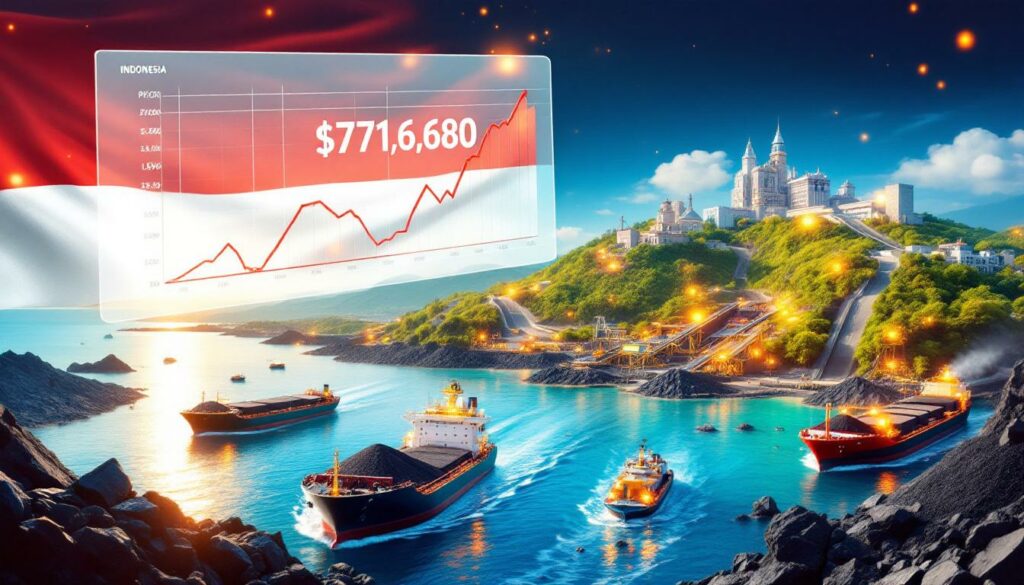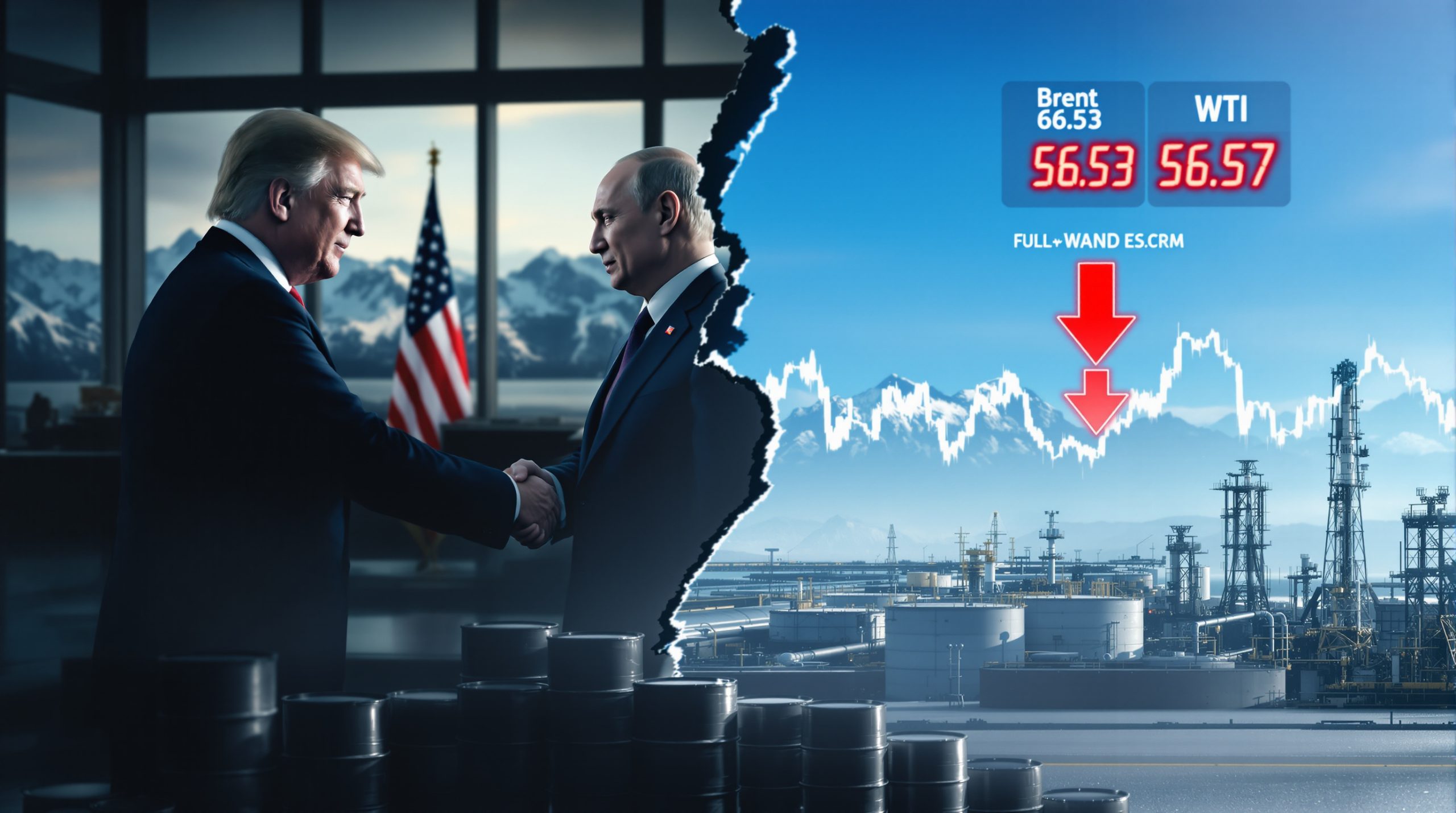Understanding Indonesia's Coal Export Levy: Implications and Economic Impact
Indonesia's status as the world's largest thermal coal exporter places it in a unique position to leverage its natural resources for economic gain. The government's recent consideration of a coal export levy represents a significant shift in resource management policy that could reshape the mining landscape while funding ambitious social programs.
What is Indonesia's New Coal Export Levy?
The Indonesian government is considering implementing a new export levy on coal shipments, designed with a price-contingent mechanism that would only activate when coal prices reach certain thresholds. This approach aims to capture windfall profits during market upswings while protecting producers during downturns.
Deputy Energy and Mineral Resources Minister Yuliot Tanjung recently announced that the levy would be collected "only when coal prices are high," reflecting the government's desire to balance revenue generation with industry sustainability. This strategic approach acknowledges the cyclical nature of commodity markets.
The levy concept originated as a parliamentary proposal and has gained traction within President Prabowo Subianto's administration, with potential implementation targeted for the 2026 budget plan. Energy Minister Bahlil Lahadalia endorsed the approach, stating: "If prices are good, then they should share some of those earnings with the state… if prices aren't economic, we shouldn't burden businesses."
While specific levy rates and price trigger points remain undisclosed, the mechanism represents a sophisticated approach to resource taxation compared to fixed-rate systems used in some other coal-producing nations.
Why is Indonesia Implementing This Export Levy?
Government Revenue Objectives
The primary driver behind the proposed coal export levy is funding President Prabowo's flagship social welfare programs. Two initiatives stand at the forefront:
- Free school meals program: A nationwide initiative aimed at improving childhood nutrition and educational outcomes
- Public housing expansion: Addressing Indonesia's growing housing needs for lower-income citizens
These ambitious social programs require substantial funding, prompting the administration to explore various revenue-boosting measures. The indonesia and coal export levy represents a strategic approach to tap into Indonesia's natural resource wealth without increasing the general tax burden on citizens.
Resource Nationalism Trends
The proposed levy aligns with Indonesia's broader resource nationalism movement, which has gained momentum in recent years. This approach emphasizes greater state control and benefit from natural resources, positioning the coal levy as part of a comprehensive strategy rather than an isolated policy.
The government's approach with coal mirrors similar efforts across Indonesia's resource sector, including:
- Higher royalties on existing mining operations
- Requirements to process minerals domestically before export
- Mandates to keep earnings in local banks for extended periods
This regulatory evolution reflects Indonesia's desire to maximize the domestic benefit of its natural resources while maintaining its competitive position in global markets.
How Will the Coal Export Levy Affect Indonesia's Mining Industry?
Financial Impact on Coal Producers
The market response to the levy announcement was immediate, with shares of major coal producers declining. PT Indika Energy and PT Bukit Asam both saw their stocks fall by 0.8% following the announcement, indicating investor concerns about potential profit impacts.
Bloomberg Intelligence analyst Mary Ellen Olson highlighted that the levy "could add to refinancing risks for high-yield companies with limited liquidity." This assessment points to a key vulnerability in the sector, particularly for companies with:
- High existing debt loads
- Limited cash reserves
- Narrow operational diversification
- Heavy reliance on export markets
The companies most exposed to these risks include Indika Energy, PT Medco Energi, MIND ID, and Freeport Indonesia, according to industry analyses. These operations may face challenges in adapting to the new fiscal regime, especially if they lack the financial flexibility to absorb additional costs.
Industry Response and Concerns
The Indonesian Coal Mining Association has requested "further clarity" on the proposal, expressing concerns about both "business sustainability and national energy security." This reaction highlights the tension between government revenue needs and industry viability.
Industry stakeholders are particularly concerned about:
- The timing of the levy amid volatile coal prices
- The cumulative burden when combined with existing royalties
- Long-term investment attractiveness for international capital
- Competitive disadvantages relative to other coal-exporting nations
These concerns underscore the delicate balance Indonesian policymakers must strike between extracting greater value from natural resources and maintaining a viable coal sector that continues to generate employment, tax revenue, and foreign exchange.
What Other Regulatory Pressures Face Indonesia's Coal Sector?
Existing Regulatory Framework
The proposed export levy would add to an already complex regulatory environment for Indonesia's coal producers. The sector currently faces:
- Progressive royalty structures: Rates that increase with production volumes
- Local bank deposit requirements: Mandates to keep export earnings in Indonesian banks for up to one year
- Domestic market obligations: Requirements to sell a portion of production to domestic buyers at controlled prices
- Environmental compliance costs: Increasingly stringent rehabilitation and emissions standards
This layered regulatory approach has evolved over the past decade as Indonesia has sought greater control over its resource sector. The proposed levy represents a continuation of this trend rather than a departure from it.
Potential Gold Export Levy Connection
Minister Lahadalia indicated that a "similar charge on gold exports was being considered," suggesting a broader minerals strategy beyond coal. This parallel approach demonstrates the government's comprehensive resource taxation strategy that extends across multiple commodities.
The potential gold export levy would likely follow a similar price-contingent model, aligning with the administration's stated philosophy of capturing upside during favorable market conditions while providing relief during downturns.
How Does This Fit Into Indonesia's Global Coal Export Position?
Indonesia's Coal Export Dominance
As the world's largest thermal coal exporter, Indonesia holds significant market power that enables it to implement policies that might be unfeasible for smaller producers. This dominant position provides the government with greater flexibility in designing revenue-generating measures.
Indonesia's coal export infrastructure and established market relationships create a resilient foundation that can absorb some additional costs while maintaining global competitiveness.
However, this position comes with responsibility, as policy changes can have ripple effects across global energy markets, particularly in key importers like China, India, Japan, and South Korea. Indonesia's decisions have outsized importance given the country's substantial global coal reserves and production capacity.
Market Conditions and Timing
The proposed levy comes at a complex moment for global coal markets, with the sector "dealing with a recent plunge in prices" according to industry reports. This timing creates both challenges and opportunities:
Challenges:
- Additional costs during a period of market weakness
- Potential competitive disadvantage against other exporters
- Investor uncertainty about future fiscal stability
Opportunities:
- Price-contingent design provides automatic relief during downturns
- Implementation timeline (2026) allows for market adjustment
- Potential consolidation that could strengthen the sector long-term
The government's acknowledgment of these market dynamics through the price-contingent mechanism demonstrates a nuanced understanding of coal market volatility.
What Are the Broader Economic Implications?
Impact on State Revenue
While specific revenue projections remain undisclosed, the coal export levy aims to "boost state revenues" substantially. The magnitude of this impact will depend on:
- The specific levy rates established
- Price thresholds that trigger the levy
- Global coal price trajectories through 2026 and beyond
- Production and export volumes from Indonesian mines
The levy's price-contingent nature means revenue generation will fluctuate with market conditions, potentially creating challenges for budget planning but providing significant upside during market booms.
Investment Climate Considerations
The introduction of a new export levy inevitably raises questions about Indonesia's investment attractiveness. Investor reactions, as evidenced by stock price movements, suggest some near-term uncertainty about the policy's impact.
Bloomberg Intelligence warns of "refinancing risks" and "uncertainty for local miners," highlighting concerns about Indonesia's evolving regulatory environment. These concerns must be balanced against the country's significant geological advantages and established infrastructure.
For international investors, key considerations include:
- Policy predictability and stability over investment timeframes
- Cumulative fiscal burden compared to alternative jurisdictions
- Market access advantages that Indonesia offers
- Regulatory clarity and implementation transparency
The government's careful approach to levy design suggests awareness of these investment climate implications, especially in light of ongoing trade war impacts that could further complicate the global mining landscape.
How Does This Connect to Indonesia's Critical Minerals Strategy?
Strategic Resource Management
Indonesia's approach to coal taxation appears connected to its broader critical minerals strategy. As global energy transitions accelerate, Indonesia is strategically positioning itself to leverage traditional fossil fuel resources while developing its critical mineral potential.
Revenue generated from the indonesia and coal export levy could potentially fund:
- Exploration initiatives for critical minerals
- Processing infrastructure for higher-value mineral products
- Research and development in mining technology
- Workforce development for emerging mineral sectors
This strategic approach allows Indonesia to utilize its current resource strengths to build capacity in minerals crucial for the clean energy transition.
International Trade Negotiations
The export levy development coincides with ongoing international trade discussions, including tariff talks with the United States regarding critical minerals access. This timing suggests the levy may serve multiple strategic purposes beyond simple revenue generation.
By demonstrating greater control over its resource exports, Indonesia strengthens its negotiating position in international trade discussions while creating potential bargaining chips for market access agreements.
What Can Coal Companies Do to Adapt?
Strategic Responses for Mining Companies
Indonesian coal producers face the challenge of adapting to a changing regulatory landscape while maintaining competitiveness. Potential strategic responses include:
- Operational efficiency improvements: Reducing production costs to offset potential levy impacts
- Diversification initiatives: Expanding into minerals less affected by export levies
- Vertical integration: Developing downstream capabilities to capture additional value
- Financial restructuring: Strengthening balance sheets ahead of implementation
- Collaborative advocacy: Working through industry associations to shape implementation details
Companies with stronger balance sheets and operational flexibility will likely navigate these changes more successfully than those with limited liquidity or high debt levels. Furthermore, adopting innovative waste management solutions could help companies offset costs while improving environmental compliance.
Long-term Business Planning
The 2026 implementation timeline provides a window for strategic adjustment. Forward-thinking companies might consider:
- Scenario-based financial modeling: Projecting impacts across various price environments
- Portfolio rebalancing: Shifting investment toward assets with more favorable regulatory profiles
- Innovation investments: Developing technologies that improve cost structures
- Stakeholder engagement strategies: Building relationships with government decision-makers
- ESG enhancement: Improving environmental and social performance to strengthen license to operate
These approaches can help companies maintain viability while adapting to Indonesia's evolving resource governance framework. Additionally, keeping pace with mining industry evolution trends will be crucial for maintaining competitiveness in this changing landscape.
FAQ: Indonesia's Coal Export Levy
When will the coal export levy take effect?
The levy is being considered for implementation in the 2026 budget plan, though the exact activation date remains subject to parliamentary approval and regulatory development.
How will the price threshold for the levy be determined?
While specific thresholds haven't been announced, government statements indicate they will be set at levels that capture windfall profits during high-price periods without burdening the industry during downturns.
Will the levy apply to all grades of coal equally?
The government has not yet specified differential treatment across coal grades, though such distinctions would align with Indonesia's existing royalty structure.
How does this compare to export levies in other coal-producing nations?
The price-contingent mechanism appears designed to be more responsive to market conditions than fixed-rate systems used in some competing jurisdictions, potentially providing greater flexibility during market downturns.
What happens to the levy when coal prices decline?
Minister Lahadalia's statement that the government "shouldn't burden businesses" when prices aren't favorable suggests automatic suspension when prices fall below the established thresholds.
Future Outlook for Indonesia's Coal Sector
Short and Long-term Projections
The introduction of an export levy represents one element in the ongoing evolution of Indonesia's coal sector. Near-term impacts may include:
- Accelerated operational efficiency initiatives
- Some consolidation among marginal producers
- Heightened focus on domestic value addition
- Increased attention to alternative revenue streams
Longer-term, Indonesia's coal sector will likely adapt to the new fiscal reality while continuing its dominant export position, though potentially with a more concentrated industry structure favoring larger, more diversified players.
While the export levy adds costs, Indonesia's geographical advantages, established infrastructure, and coal quality will continue to provide competitive advantages in global markets.
Global Energy Transition Considerations
Indonesia's indonesia and coal export levy occurs against the backdrop of global energy transition pressures. As major economies accelerate decarbonization efforts, Indonesia's coal sector faces both challenges and opportunities:
Challenges:
- Potential long-term demand erosion in traditional markets
- Increasing ESG scrutiny from international investors
- Competitive pressure from renewable energy alternatives
- Carbon border adjustment mechanisms in key export markets
Opportunities:
- Continued strong demand from developing Asian economies
- Premium markets for higher-quality, lower-emission coal
- Technology integration for improved environmental performance
- Strategic pivots toward critical minerals needed for clean energy
By implementing a price-contingent levy rather than fixed costs, Indonesia demonstrates recognition of these transitional pressures while maintaining the sector's adaptability to changing market conditions.
Disclaimer
This analysis is based on currently available information about Indonesia's proposed coal export levy. The actual implementation details, economic impacts, and industry responses may differ as the policy develops. Readers should consult official government documents and financial advisors before making investment decisions related to the Indonesian coal sector.
Ready to Capitalise on the Next Major Mining Opportunity?
Stay ahead of significant mineral discoveries and market movements with Discovery Alert's proprietary Discovery IQ model, delivering real-time notifications on ASX announcements that could reshape your portfolio. Explore our dedicated discoveries page to understand how historic mining discoveries have generated substantial returns for early investors.




